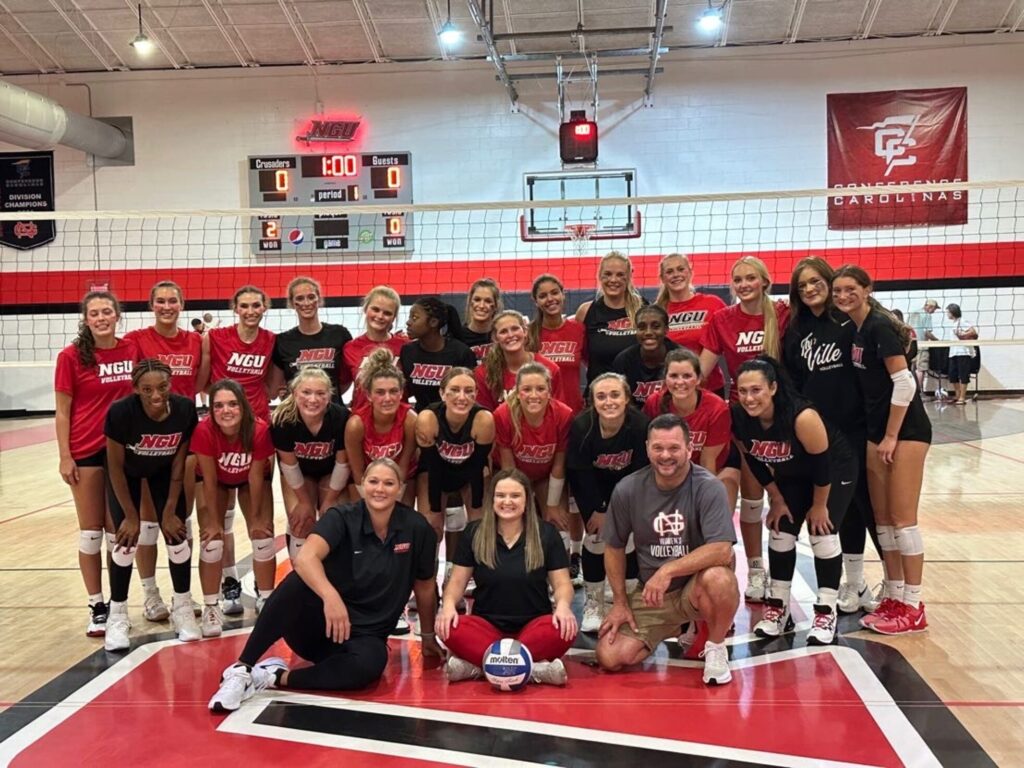
The NCAA doubles down
Photo by Makayla Reusch
Kelsey Watson, Staff Writer
The NCAA recently passed a rule allowing double contact on the team’s second touch in women’s volleyball if it does not go over the net.
If the ball goes over the net, the other team gets a point. In volleyball, double contact has always been a judgement call by officials. The second touch is usually by the setter, and if they see the set spin sideways, that usually means one of the setter’s hands touched the ball before the other. This results in a double contact call. With this rule in place, the NCAA hopes to eliminate judgement calls so the game can be more consistent.
Ally Ball, freshman setter for North Greenville University’s women’s volleyball team says this new rule will not affect her game.
“I don’t think the rule will really impact me or my mindset or change anything for me. But I think it’ll relieve a little bit of that stress of worrying if I get called on a double or maybe it’ll make me a little bit more confident in my setting,” Ball said.
This specific call has caused many debates over the years because of its inconsistent calls by different officials.
Greg Mosely, NGU’s women’s volleyball head coach, said, “Anything that can impact your game strategically to help benefit the quality of experience for the player or players — I’m for that.”
With this new rule change allowing double contact on the team’s second touch on the ball, it allows other positions on the court to set the ball if the setter cannot get there in time or if the setter got first touch.
“We’ve been very tight about letting our defensive specialist use hands on second touch when setter takes first ball. So now they can,” said Mosely.
One of the main things the public has been concerned about with this rule is the integrity of setting. As a setter, you continuously work to perfect your set to make sure there can be no double-call on you.
“As a setter, I feel like a big part of it is like the art of setting and the craft of it and the technique. So, I think it’s a little disappointing just because I feel like as a setter, a lot of the work you put in is really focused on technique,” said Ball.
Even though doubles are now allowed, Ball says this new rule will not affect her perfecting her set.
“It is not going to affect this skill training. I think, in a positive way, it will create and open up . . . the door for that second contact to be made with hands from anybody as long as it stays on the side of the court. And so that is something that does change somewhat the strategy of how you approach the game,” said Mosely.
While he plans for his team to continue to train like they have in the past, he recognizes how this rule can positively impact various positions on his team.
As Ball reflected on this change as a setter, her position holds a lot of technique, so it is hard to grasp onto changing it.
“I think volleyball in general is just kind of an art and stuff like that. So, I feel like they shouldn’t eliminate it, because so much of it is technique and form craftsmanship,” she said.
While there are many different opinions and viewpoints on the new rule, the ultimate hope is to eliminate inconsistencies within the sport and allow the second touch to be easier to place for all positions.
